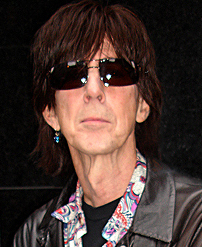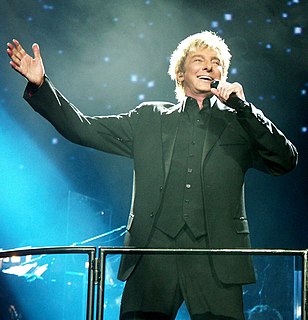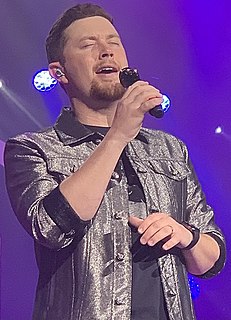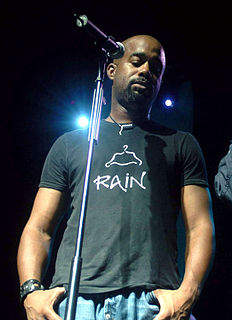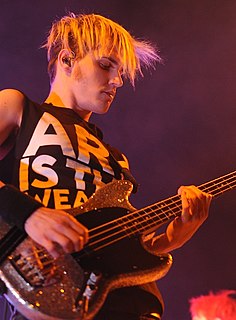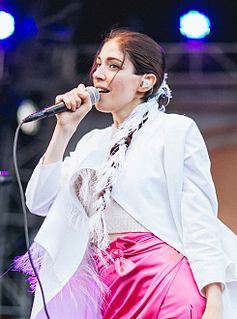A Quote by John Legend
Well, what's interesting, I try not to think about the radio when I'm writing a song. I want people to love the song, and that means it might not be exactly thinking about the radio, but it's thinking about your audience and saying, 'I want people to like this song after it's done.'
Related Quotes
I think the line is where you're in the studio, you're creating. That belongs to you as an artist. Nothing should taint that. I shouldn't be thinking about what the fans want, I shouldn't be thinking about what the radio wants, what the label wants, what your manager wants, a song for the chicks, a song for the street.
The best thing you can do for a song is to hear it on the radio and to imagine what it could mean to you and then kinda forget the words. Just imagine how you felt when you heard it, if it was one of your songs. If it became one of your songs. If it meant whatever it meant for you and as soon as you see the visual, you get a rapid eye movement relationship with the song instead of an imaginative one. I think that can be dangerous because I don't think I'd want to be listening to a song on the radio and thinking about the video. Whatever that one interpretation was
To write a love song that might be able to make it on the radio, that is something that is terrifying to me. But I can definitely write a song about that chair over there. That I can do, but to sit and write a pop song out of the clear blue sky, that is very difficult and I admire the people that can do it.
The interesting thing about a song like 'Bulletproof Heart' - it was [originally] called 'Trans Am' - the interesting thing about the amalgamation of that song was that the song also lived within us, like we all got to live with the song and it was around for about a year before we recorded it again, so the song got to really transform, which you don't really get to do.
We just met for the first time and David Byrne was like, "Hey, you want to sing on this song?" and I was like, "Yes, I do want to sing on that song." He's the most legendary dude but I wasn't thinking about how he was a legend when rehearsing. I was just thinking, "Wow, this guy really knows what he wants in his music." And that ended up being the vibe, like "Oh, you wanna try that?" "Yeah, that sounds great!"
I wrote 'Turn Your Radio On' in 1937, and it was published in 1938. At this time radio was relatively new to the rural people, especially gospel music programs. I had become alert to the necessity of creating song titles, themes, and plots, and frequently people would call me and say, 'Turn your radio on, Albert, they're singing one of your songs on such-and-such a station.' It finally dawned on me to use their quote, 'Turn your radio on,' as a theme for a religious originated song, and this was the beginning of 'Turn Your Radio On' as we know it.
You are hearing this song, and you're 16, and it's a song about love, or a girl. And then maybe there's a girl at school that you like. So you're going to be thinking about that girl. That song is sort of about that girl. The songwriter doesn't know that girl, obviously. He wrote it for something else. But there's the specific meaning with the universal again.
I can have a song with Ariana Grande that is going to be the song for all the kids and the teen girls, and then another song that could be for a different group of people who all love the song. I'm with whoever. Whatever type of people want to love the music and whatever they love about the music is fine with me.
I can have a song with Ariana Grande that is going to be the song for all the kids and the teen girls, and then another song that could be for a different group of people who all love the song. Im with whoever. Whatever type of people want to love the music and whatever they love about the music is fine with me.
An audience will let you know if a song communicates. If you see them kind of falling asleep during the song, or if they clap at the end of a song, then they're telling you something about the song. But you can have a good song that doesn't communicate. Perhaps that isn't a song that you can sing to people; perhaps that's a song that you sing to yourself. And some songs are maybe for a small audience, and some songs are for a wide audience. But the audience will let you know pretty quickly.


